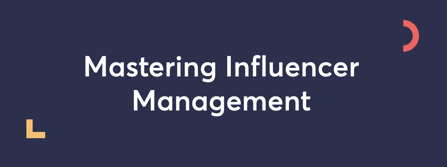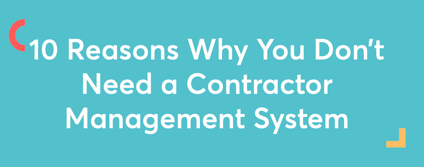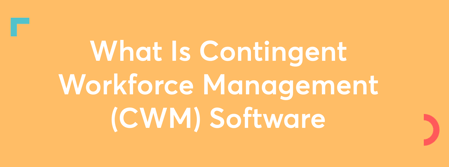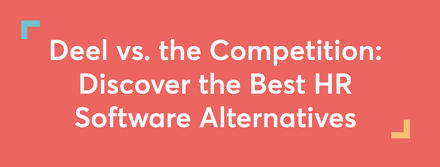What is a Vendor Management System (VMS)? A Complete Guide
- 4 Apr 2025
- 5 mins read
- Posted in
Contents
In today’s fast-evolving world of work, businesses are no longer just managing permanent employees. From freelancers and consultants to service providers and global contractors—your external workforce is now a vital part of your success story.
But with great talent comes great responsibility.
Managing this dynamic, distributed workforce manually is no longer sustainable. That’s where a Vendor Management System (VMS) comes in—a powerful platform that helps you stay organized, stay compliant, and stay ahead.
Let’s explore what a VMS really is, how it works, and why more businesses are turning to it to streamline their operations.
What is a Vendor Management System (VMS)?
A Vendor Management System, or VMS, is a cloud-based software platform designed to centralize and simplify the way businesses manage vendors, service providers, and contingent workers. It takes care of everything—from onboarding and contract management to performance tracking, invoicing, and compliance.
Think of it as your all-in-one control center for handling external partnerships. With a VMS in place, you can automate time-consuming admin tasks, reduce risks, gain complete visibility over vendor costs and performance—and ultimately, make better business decisions.
Industries like IT, healthcare, finance, manufacturing, and professional services are increasingly leaning on VMS platforms to bring structure and clarity to their external talent strategies.
Why Businesses Need a Vendor Management System
1. Navigating the Rise of Flexible Workforces
The way we work has changed. Companies are embracing contingent talent—freelancers, consultants, contractors—more than ever before. A VMS empowers you to manage this flexible workforce seamlessly, giving you the tools to source, vet, onboard, and track performance efficiently.
2. Goodbye, Spreadsheets
Still relying on spreadsheets, email threads, and scattered tools to manage vendors? That’s a fast track to errors, delays, and data chaos. A VMS brings it all under one roof—automating workflows and eliminating manual bottlenecks.
3. Staying Compliant & Secure
Vendor compliance isn’t just a tick-box exercise—it’s critical to protecting your business. Whether it's staying on top of labor laws, tax regulations, or cybersecurity standards, a VMS helps you stay compliant, reduce legal exposure, and keep your operations squeaky clean.
4. Efficiency Through Automation
From chasing contracts to processing payments, repetitive admin tasks can eat up valuable time. A VMS automates these processes, giving your team more time to focus on what really matters—strategy, growth, and innovation.
Key Features of a Vendor Management System
1. End-to-End Vendor Lifecycle Management
From first contact to final offboarding, a VMS helps you manage every stage of the vendor journey. You can standardize processes, define expectations, monitor deliverables, and maintain quality across the board.
2. Built-In Compliance Monitoring
Never miss an expiration date again. A VMS tracks vendor certifications, insurance, licenses, and more—automatically notifying you when renewals are due or issues arise.
3. Seamless Integrations
Your VMS should play nicely with your other systems. The best ones integrate effortlessly with your ERP, HRIS, finance, and procurement tools—ensuring everyone is working off the same set of data.
4. Actionable Reporting & Insights
Modern VMS platforms come equipped with dashboards and custom reports that give you real-time visibility into costs, risks, and performance. This helps you spot trends, address issues early, and make informed decisions.
5. A Single Source of Truth
No more scattered documents or missing files. All vendor-related data—contracts, communication history, certifications, and payments—lives in one secure, searchable database.
Pros and Cons of a Vendor Management System
The Benefits
- Clear Visibility: Real-time data helps you track vendor performance, costs, and contract status.
- Cost Control: Better oversight and automation mean fewer errors and stronger negotiations.
- Risk Reduction: Stay ahead of compliance with proactive tools and audit-ready records.
- Streamlined Workflows: Standardized processes improve collaboration and reduce admin overload.
Faster Onboarding: Automated documentation and vetting speed up vendor onboarding.
Things to Keep in Mind
- Implementation Complexity: Getting started with a VMS can take time, especially for large setups.
- User Adoption: Teams may need support and training to adapt to the new system.
- Tech Integration: Compatibility with legacy platforms might require extra IT work.
Customization Limits: Some platforms may not cater to every niche requirement out-of-the-box.
Vendor Management System (VMS) vs. Freelance Management System (FMS)
|
Feature |
Vendor Management System (VMS) |
Freelance Management System (FMS) |
| Purpose | Manages vendors & service providers | Manages freelancers & contractors |
| Users | Procurement, HR, Legal | Hiring managers, project leads |
| Focus | Compliance, performance, invoicing | Onboarding, collaboration, payments |
| Integrations | ERP, HRIS, procurement tools | Project & communication tools |
| Best for | Structured, long-term vendor relationships | Short-term, flexible, gig-based work |
➡️ Want to dive deeper into FMS platforms? Check out our full blog here.
Challenges of Implementing a VMS
1. Upfront Time & Cost
There’s no sugarcoating it—VMS platforms can take some time (and budget) to roll out. From licenses and integrations to training your team, it’s a project in itself.
2. Resistance to Change
Switching from manual processes to automated systems can cause friction. But with strong internal buy-in and the right change management plan, you’ll see adoption pick up quickly.
Top Vendor Management Systems to Consider
SAP Fieldglass
A global leader built for enterprise-level needs, SAP Fieldglass is great for companies managing complex supply chains and looking for robust analytics and compliance tools.
Beeline
Known for its AI-powered decision-making and focus on contingent labor, Beeline is ideal for businesses needing customizable workflows and advanced reporting.
Coupa Contingent Workforce
Part of Coupa’s wider spend management suite, this VMS is perfect if you're already using Coupa tools. It emphasizes cost control and full visibility.
Workday VNDLY
A smart choice for Workday users, VNDLY offers tight integration across HR, finance, and payroll—making it easy to align your full workforce strategy.
Genuity
Designed for small and mid-sized businesses, Genuity delivers a user-friendly, budget-friendly way to manage contracts, vendors, and spend tracking.
TalentDesk
Built specifically for managing freelancers, contractors, and vendors, TalentDesk is your flexible, scalable VMS. With global payment automation, built-in compliance, time tracking, and seamless onboarding—all in one intuitive platform—it’s ideal for teams of any size looking to simplify vendor management.
How to Choose the Right Vendor Management System
Choosing a VMS isn’t just about ticking boxes—it’s about finding the right fit for your business. Here’s how to narrow it down:
- Match It to Your Business Needs:
Large enterprise? Look for global coverage and deep features. Scaling startup? Choose simplicity and speed-to-value. - Check Integrations:
Make sure it connects with your existing HR, finance, and procurement tools to avoid data silos. - Prioritize Compliance Tools:
Look for automated document tracking, approval workflows, and audit logs—especially if you operate in regulated industries. - Embrace Automation:
Let the platform take care of onboarding, invoicing, approvals, and reporting. - Watch Your Budget:
Flexible pricing models (like modular or pay-as-you-grow plans) help keep costs under control. -
Test the Experience:
A powerful platform only works if your team can actually use it. Request a demo, try it out, and look for clean UI and responsive support.
AI and the Future of VMS
1. Predictive Vendor Matching
AI can help identify the best-fit vendors based on historical data, risk levels, and cost efficiency—making smart procurement even smarter.
2. Managing a Broader Workforce
VMS platforms are evolving to handle not just people, but bots, RPA tools, and even AI agents—reflecting today’s hybrid workforce.
3. Smarter Decision-Making
With AI-powered alerts and automation, your VMS can recommend contract changes, flag issues early, and optimize workflows in real time.
➡️ Curious how TalentDesk is using AI to supercharge vendor management? Check out how our Phoenix assistant is transforming talent discovery.
Final Thoughts – Is a VMS Right for You?
Whether you’re managing 5 vendors or 500, a Vendor Management System can help bring order, insight, and efficiency to your external workforce strategy. With the right platform, you’ll spend less time on admin—and more time on growth.
At TalentDesk, we’ve built our VMS to do exactly that. From onboarding and payments to compliance and reporting, we take care of the entire vendor lifecycle—so you can focus on scaling your business.

Stefani Thrasyvoulou
Speak to us to find out how we can help you manage and pay your contractors
Related articles
Best Contractor Management Software for 2025
Best Contractor Management Software for 2025
Discover the best contractor management software to streamline workflows, ensure compliance, and simplify payments. Manage global contractors with ease.

Mastering Influencer Management: Strategies for Effective Collaboration
Our guide to influencer management, exploring strategies, tools, and tips to create successful influencer relationships and enhance your marketing impact.

10 Reasons Why You Don’t Need a Contractor Management System
Discover 10 hilarious reasons why you absolutely don’t need a contractor management system - because who needs efficiency, happy freelancers, or sleep?

2024 Engineering Recap
See how we enhanced features and added automation in 2024 to improve TalentDesk user experience. Here's a full recap and a look ahead to 2025.

What Is Contingent Workforce Management Software?
Discover how contingent workforce management software enhances cost savings & access to talent. Learn about essential tools, compliance & best practices.

Deel vs. the Competition: Discover the Best HR Software Alternatives
Discover the best Deel alternatives for global HR management. Compare features, pricing, and reviews to find the best solution for your global workforce.
The Ultimate Guide to External Game Development
The Ultimate Guide to External Video Game Development
Explore our ultimate guide on external game development, covering crucial strategies, tools, and tips to manage freelance developers efficiently.
How to Manage Subject Matter Experts
How to Manage Subject Matter Experts
Unlock the full potential of your projects with our expert guide on managing Subject Matter Experts. Learn strategies for effective collaboration.

What is a 1099 employee?
This is a complete guide on 1099 employees. Learn how to classify your workers, improve finances, boost employee morale, and enhance your reputation.

6 Reasons Why You Should Hire a Freelance Social Media Manager
This is a guide on the benefits of hiring a social media manager. Learn how to save time and enhance your social media reputation from expert insights.
